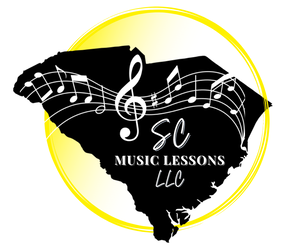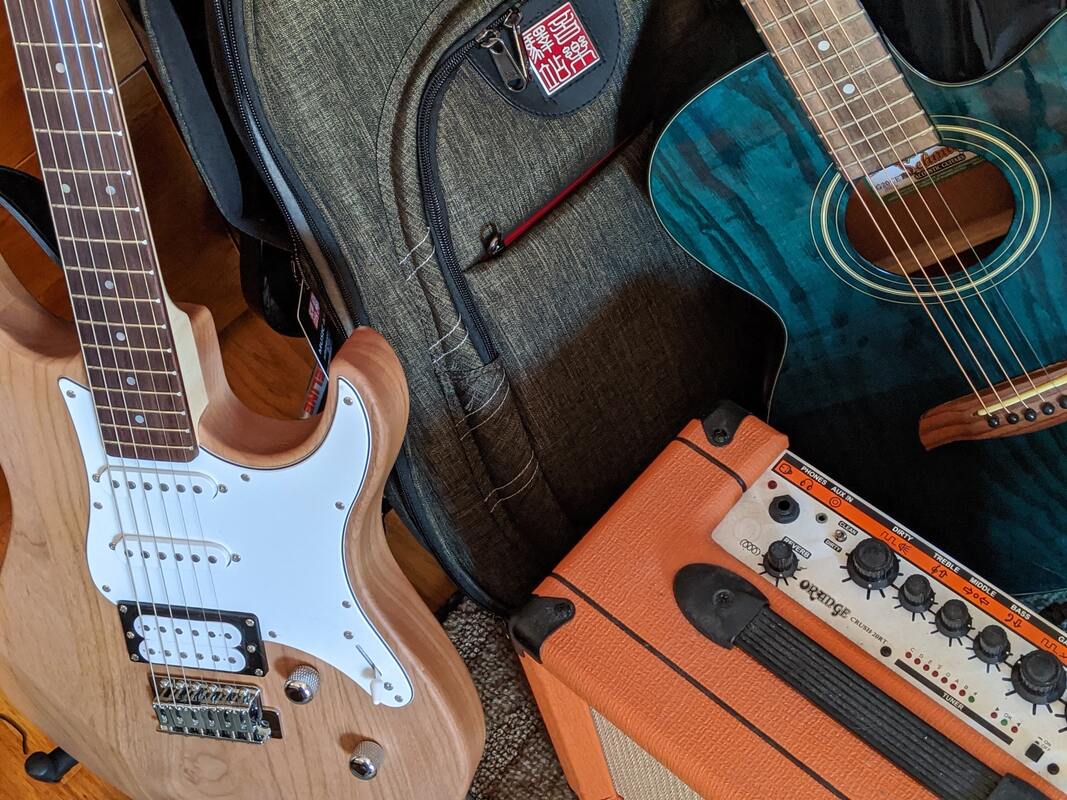|
Did you know "percussion" is actually a plural term? It not only includes drum set but also rudimental snare, timpani, keyboard percussion (e.g., marimba, xylophone, vibes, glockenspiel), and orchestral auxiliary instruments (e.g., triangle, tambourine, concert bass drum, crash cymbals), and more! Drummers are a type of percussionist who can choose different areas of focus:
Any drummer will need to invest in having their own drum set and accessories for practice during the week. Without applying the information learned at the lesson during the week, progress will be stunted. Drummers who practice progress more quickly! When searching for drums, we know the options can become overwhelming! We also recognize that the quality of the instrument needed may change as a student progresses; therefore, we have shared multiple options at a variety of price points. Our percussion instructor, Kyle, who has his masters degree in percussion performance, has shared his expertise and recommendations below in order to help you make the right decision for your needs! To note, this post contains affiliate links for items that we recommend and use. We may earn a small commission from Amazon at no cost to you. Types of DrumsThere are two basic types of drum kits. For each type, we have shared pros and cons to consider when choosing the right instrument for your student and your family. ACOUSTIC DRUMS Acoustic instruments make sound without the use of electricity or amplification.
Pros
Cons
4 Comments
Any student wanting to learn an instrument will need to invest in having their own instrument for practice during the week. Without applying the information learned at the lesson during the week, progress will be stunted. Students who practice progress more quickly! When searching for guitars, we know the options can become overwhelming! We also recognize that the quality of the instrument needed may change as a student progresses; therefore, we have shared multiple options at a variety of price points. In this post our guitar instructor, Seth, has shared his expertise in order to help you make the right decision for your needs! To note, this post contains affiliate links for items that we recommend and use. We may earn a small commission from Amazon at no cost to you. Types of GuitarsThere are three basic types of guitars: 1. Acoustic Guitars are often the most popular choices for students beginning guitar lessons! Acoustic guitarists can share music as a soloist or as part of a band. Acoustic guitars can be played without external amplification, however, many acoustic guitars have a featured to allow them to be amplified, if desired. 2. Classical Guitars are similar to acoustic guitars but more often used for Flamenco and Spanish music. The body can be slightly larger and typically uses nylon strings vs. steel strings. 3. Electric Guitars require external amplification in order to be heard. They are most often used as part of a band in a variety of genres including Jazz, Blues, Soul, Funk, Pop, Rock, Country and Metal. Our recommendations focus on acoustic and electric options for both children and adults! If you need a left-hand guitar recommendation, send us an email at [email protected]. Why are the Prices Different?When buying a guitar, appearance is only part of the price increase on a guitar. The main reasons for price increases are:
|
CONTACT
Holly Slice, Owner
Email: [email protected]
Phone: 843-310-1083
Visit Our Sister Site:
Lowcountry Pianist & Company LLC
Email: [email protected]
Phone: 843-310-1083
Visit Our Sister Site:
Lowcountry Pianist & Company LLC
LEGAL
© 2024 SC Music Lessons LLC
All Rights Reserved.
All Rights Reserved.




 RSS Feed
RSS Feed